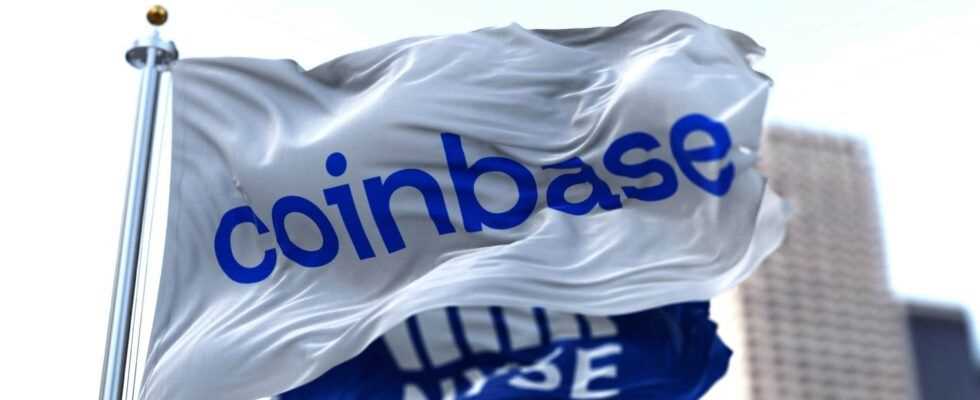After Ripple, now Coinbase. When does trading in cryptocurrencies become securities trading? And when does the SEC intervene?
After the SEC (United States Securities and Exchange Commission) first targeted Ripple, it is now Coinbase your turn. Again, it revolves around the old question: When is the supply of cryptocurrencies a securities business? And to what extent is the SEC responsible for this and when is a ban or adjustment requirement justified?
Current focus
The content of the current dispute is the planned lending program (Loin). The idea is that customers do not get into the program itself, but rather through the Coinbase Platform in the stablecoin USDC. Coinbase then lends the USDC to verified borrowers, allowing customers to earn up to four percent effective return. According to the crypto trading platform, these rates are completely independent of Coinbase’s other business. They emphasize that they want and will fulfill the obligation to repay any USDC upon request and that they will keep the capital entrusted to them safe. Currently, you can only register for Lend in advance.
Why?
Although the SEC and Coinbase have been in an exchange about this product for six months, it has so far neither been on the market nor has it disappeared from the Coinbase website. That is due to the freshly appeared Blog Entry of Chief Legal Officer Paul Grewal mainly due to the SEC’s lack of willingness to communicate. In his contribution, he clearly criticizes the fact that although the SEC says “talk to us, come to us” (“talk to us, come in ”) would have shown a nice gesture, but currently nothing can be felt. Instead, despite complying with SEC requirements, the company would have been left behind with no justification for the classification.
The SEC has repeatedly urged our industry to ‘talk to us, come in.’ We did that here. But today all we know is that we can either keep Lend out of the market indefinitely without knowing why, or we can be sued.
Paul Grewal, The Coinbase Blog, September 8, 2021
Coinbase perspective of what happened
- Coinbase would have tried to get in touch with the SEC before Lend was officially announced.
- The SEC would have failed Lend on the Howey and Reves Supreme Court cases in 1946 and 1990. Lend was thus classified as a security.
- When asked by Coinbase employees what exactly it would have failed, there would have been no answer from the legal authority.
- Coinbase is holding Lend back and allegedly continuing to provide all information to the SEC.
- In June 2021, Lend will be announced but not released for sale.
- The SEC then initiates a formal investigation, which includes (a) receiving a series of documents and (b) questioning Coinbase employees.
- Coinbase is cooperative and approves both applications. However, the company then claims to have ceased to cooperate when the SEC asked for the names and contact information on Lend’s list of interests to be released.
- Now there would have been one since September 1st Wells Notice on the table signifying the SEC plans to file an enforcement lawsuit.
Please SEC, clear rules, but for everyone
The CEO Brian Armstrong commented on this conflict on his Twitter account with 21 points. Points 3, 7, 9, 11 and 13 deserve special attention. In these, he formally asks for unambiguous and clear legislation in order to maintain fairness and transparency. At the same time, he emphasized that if guidelines and regulations are determined, they must also apply equally to all market participants. It seems like he is referring to direct competitors BlockFi and Celcius, who have not yet been investigated by the SEC.
The SEC has not yet commented on this storyline.
